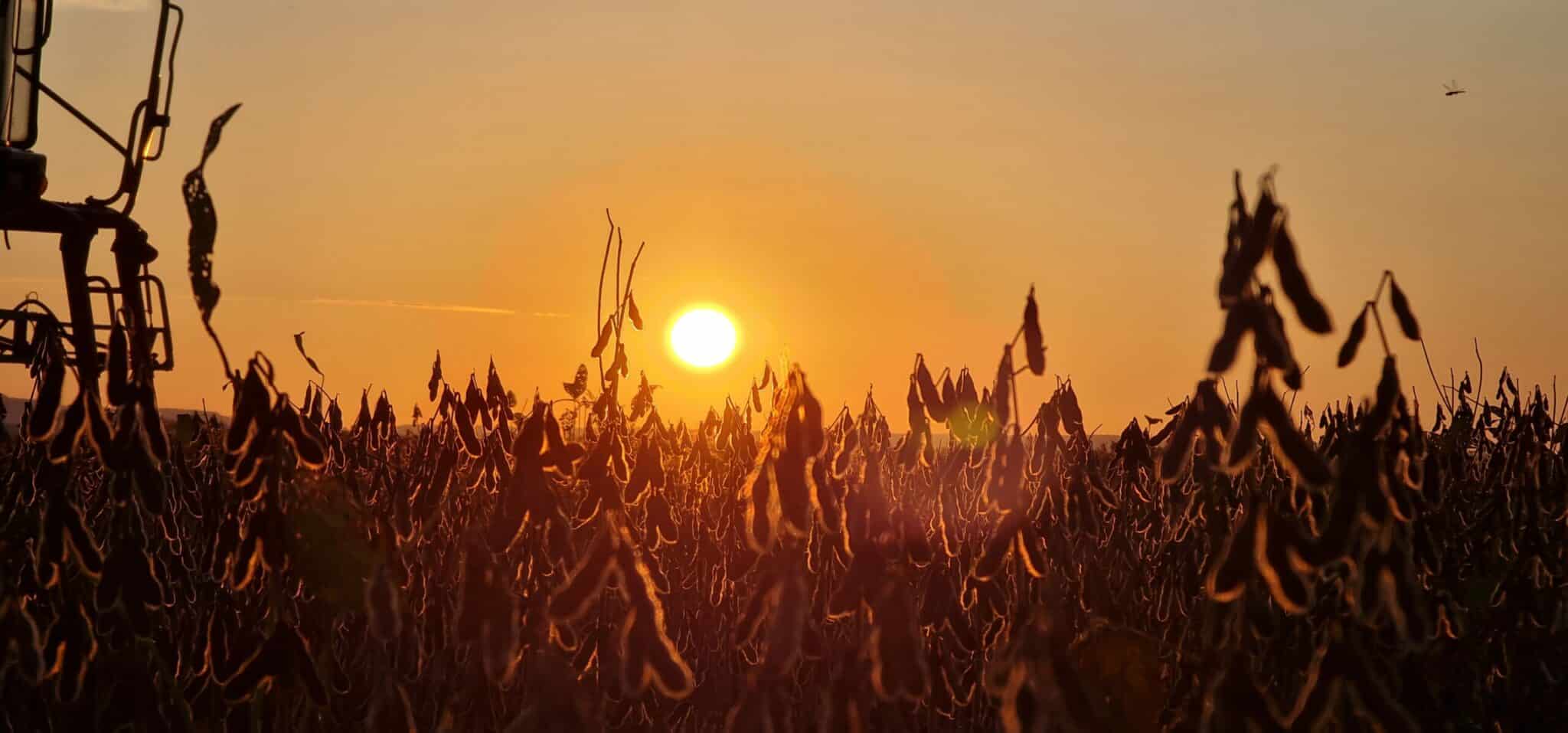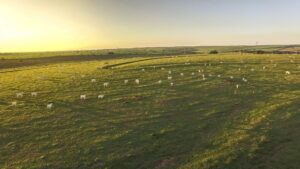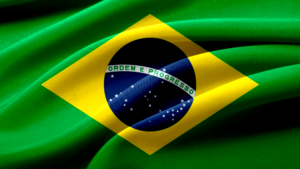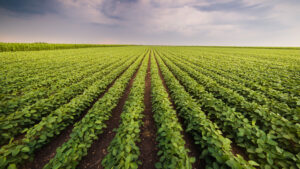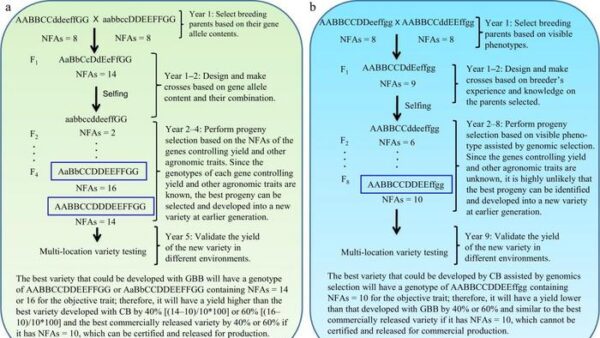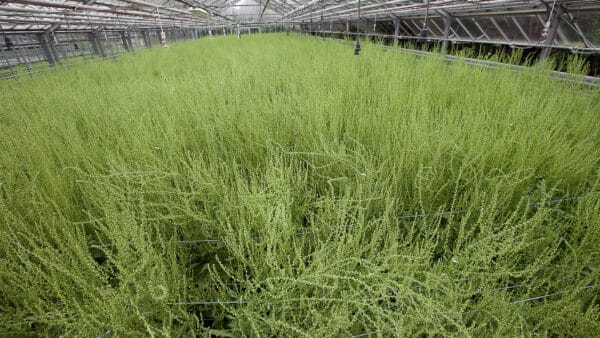Brazilian soybean demand and production rose dramatically over the past decade supported by new seed technologies.
Over the past few decades, soybean production in Brazil has risen. The South American nation has continued to add farmland, increasing its soybean area as demand has grown for the oilseed. With improving seed technology demand is expected to continue to swell.
“Brazil is one of the most important soybean producers in the world,” Andre Buran, Bayer Crop Science’s seeds and traits marketing head for Latam. “As a technology company, we are positioned in this chain in different ways. One of the most important is related to both seeds and biotechnology to try to help growers produce more and be more sustainable.”

According to the United States Department of Agriculture, soybean production in Brazil has grown steadily over the past decade with production and area increasing annually. For the 2022/2023 crop year, Brazilian farmers planted 43.4 million hectares producing 153 million tons of soybeans, higher than the five-year averages which are 37.79 million hectares and 128.28 million tons. Over the past five years area has increased by 15% and production by 19%.
China is the main buyer of Brazilian soybeans, taking 75-80% of exports explains Marcela Marini, a senior analyst for grains and oilseeds with Rabobank in Sao Paulo, Brazil. After China, European and other southeast Asian nations are the top purchasers of the country’s soybeans.
However, it hasn’t been all good news regarding production. The past two growing seasons, production did not increase as much as expected due to La Niñas rolling through the growing regions. Marini notes this reduced the amount of soybean exports from the nation, however, that was also tied to an increase in Brazil’s crush capacity which lowered their reliance on exports for processing.
Brazilian soybean export demand has been tied to high futures contracts on the Chicago Board of Trade and a weak Brazilian currency. Brazil’s currency, the real, as of March 13, 2023, is worth USD$0.19. The southern hemisphere nation also has a boost due to its growing season — the soybean harvest starts in January with Argentina’s not starting until a few months later and American crops not being taken off until late September.
“We have a few months where there are no big competitors, and this is a very good advantage for us. And the currency devaluation, that plays a key role in terms of soybean competitiveness,” Marini explains, adding Brazilian farmers are also able to double crop, planting both a soybean and a corn crop within the same year.
The tropical climate is also a perk for soybean production, Santiago De Stafano adds. The high temperature and ample rain are more suitable for soybean growth compared to corn which prefers a cooler nighttime temperature.
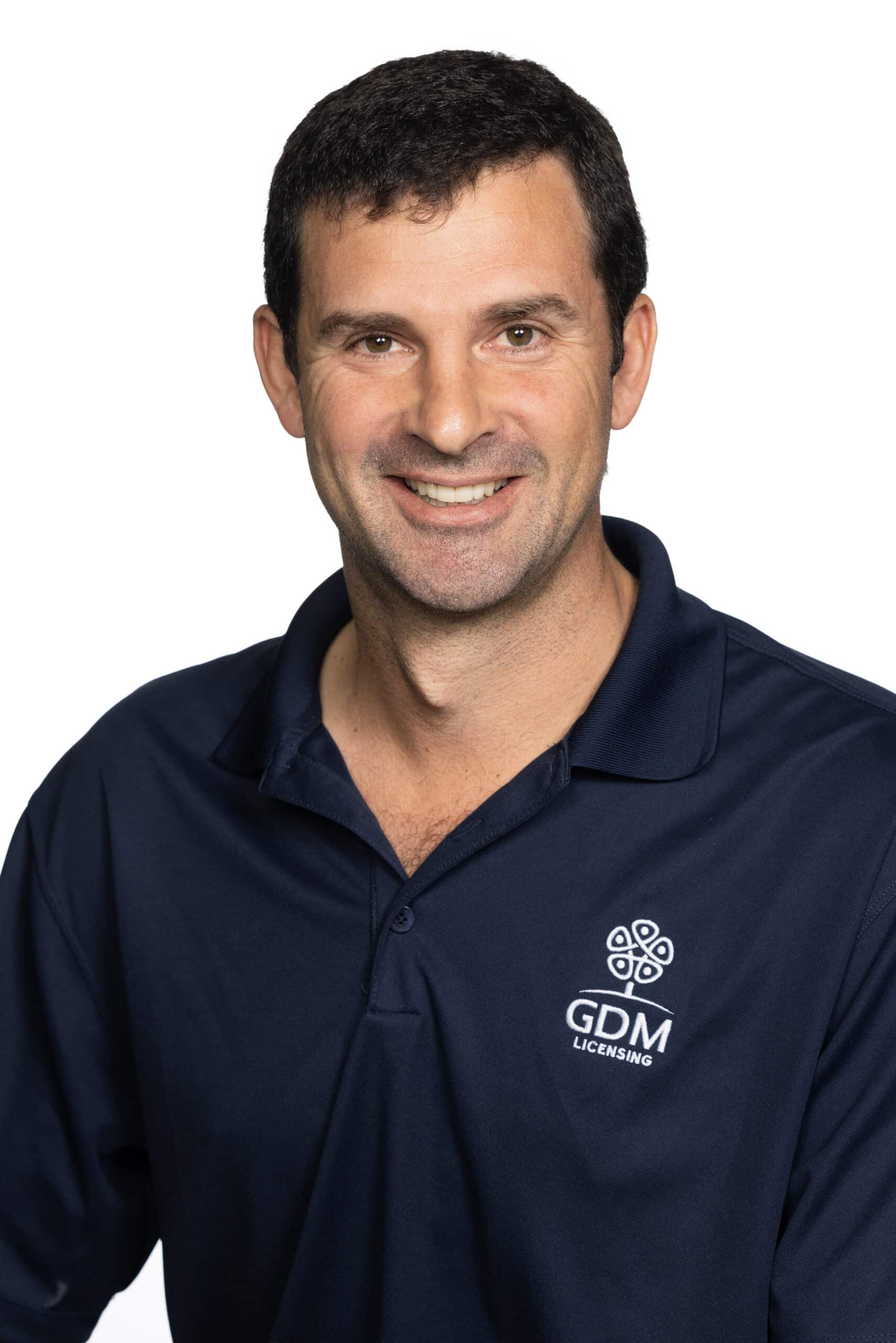
“The industry has been working a lot to adapt varieties, to adapt production systems to be very aligned with the need of the Brazilian environment. So, there’s been a lot of hard work of the industry to help or to move in the same direction that the acreage was moving,” De Stafano, global business director for GDM, explains.
The South American nation has also invested in export infrastructure in the past few years, which has allowed farmers in the country to increase production, Buran says.
Demand for soybean seeds has increased with the rising production demands. Brazilian law allows for farm saved seeds, which in the past reduced seed sales in the region. Over the past two decades that has changed, Buran explains. As companies, including Bayer, introduced new soybean seed technology and increased the number of commercial seed growers in the region, more farmers have started purchasing certified seed. Buran estimates now close to 90% of soybean seed planted in Brazil is certified.
“We are bringing the opportunity to the growers to access new technologies that contributes with their production cycle in terms of yield production or yield increase, are reducing the spray of insecticides, herbicides and so on. Those biotechnologies are contributing to the chain,” he explains.
Due to the vast production area, farmers across the country have different threats when it comes to their soybean crops with conditions varying from field to field. With Brazil being a tropical climate, soybean crops face a lot of insect pressure making seed biotechnology that can help with insect control an important tool for farmers.
“(Brazilian farmers) are very open to innovation, coming from seeds, passing through machinery, to fertilizers, everything. The growers in Brazil are very professional growers and they accept a lot of innovation in their process,” Buran says.
For Bayer, they have focused a lot of resources on Brazilian operations. The seed company has even launched products in Brazil before the American marketplace — a first for the company. In 2020 Bayer launched soybean varieties with Intacta 2Xtend in Brazil.

“In our predictions in the next years, we really believe that it’s important keep investing. We have already new important technologies to bring in the upcoming years to Brazil,” Buran explains. “We believe that we need to keep the space of investments to keep bringing innovations on soybean to Brazilian growers. And help them to do their best in terms of production and sustainability.”
Demand for soybean seed should continue to increase in Brazil as demand for production of the oilseed crop is expected to rise. Rabobank is expecting a record volume of exports and record domestic demand for Brazilian soybeans this year. Marini adds the Brazilian government’s biodiesel mandate is also expected to increase this year, which will in turn drive up domestic need for soybeans.
“The (seed) industry was a key part of this growth in Brazil, enabling farmers with more technology, with technology adapted to the needs to continue growing their acres over these 10 years. And we believe that for the next 10 years we will continue on the same path,” De Stefano says.


